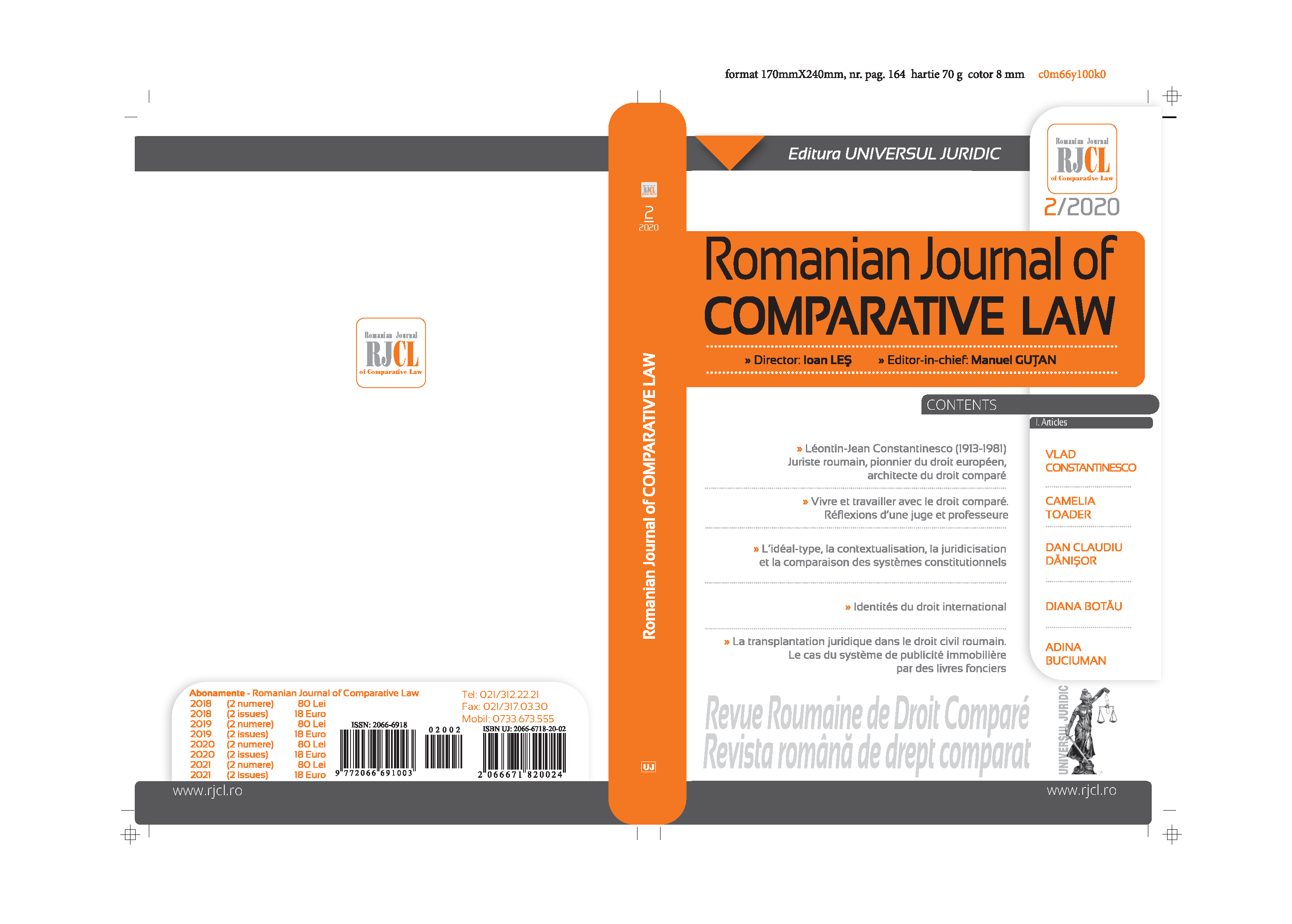L’idéal-type, la contextualisation, la juridicisation et la comparaison des systèmes constitutionnels
The ideal type, contextualization, legalization and comparison of constitutional systems
Author(s): Dan Claudiu DănișorSubject(s): Law, Constitution, Jurisprudence, Civil Law
Published by: Universul Juridic
Keywords: contextualisation; comparison of constitutional systems; self-reflexive concepts; legalisation;
Summary/Abstract: Comparing the constitutions of different societies means comparing the concepts that the respective societies have of themselves, self-reflexive concepts, that seem a priori to be non-comparable. In order to overcome the apparently insurmountable difficulty, it is necessary to understand that all legal concepts are constructed in an oppositional and contextual manner. What we can compare, though, is the type of oppositions that constitute them, more exactly, the type of revolutions that differentiate them. But this understanding supposes being inside the process, the internalisation of fundamental oppositions, which is not at all easy. In order to compare constitutions as fundamental concepts, it is therefore not sufficient to grasp their formulation (the written constitution), but it is necessary to understand them, namely to be able to discern their sources in the mentality of the collectivity which built them, and understand not only their concretisation, but also their justification.
Journal: Revista Română de Drept Comparat
- Issue Year: 2020
- Issue No: 02
- Page Range: 227-256
- Page Count: 30
- Language: French
- Content File-PDF

